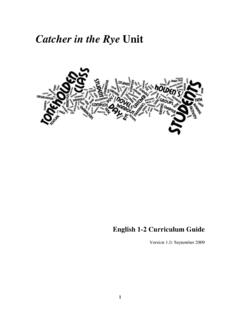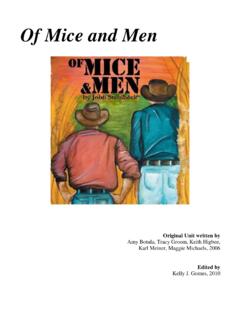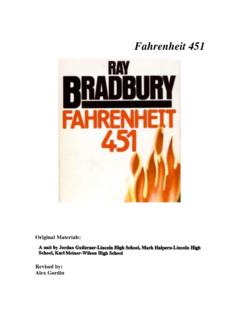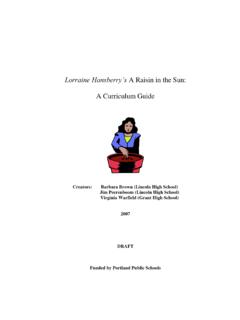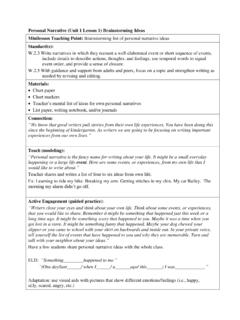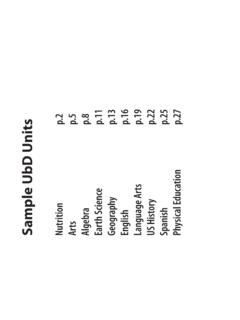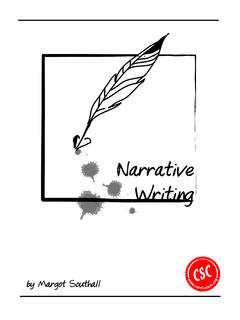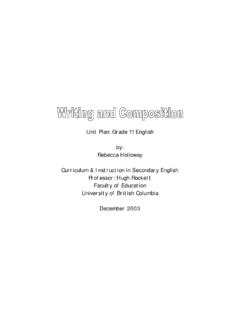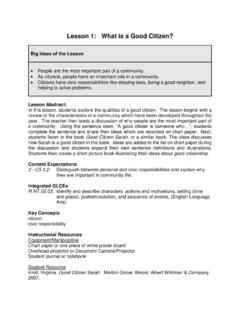Transcription of The Alchemist - Portland Public Schools
1 The Alchemist Unit written by: Gene Brunak 1 Introduction to Unit Concerns have been expressed about the pessimistic nature of the body of works widely available and taught at the sophomore level (Of Mice and Men, Night, Animal Farm, Lord of the Flies, to name a few) and the dearth of material that might provide a more optimistic perspective on things for the 10th graders. The Alchemist (by Paulo Coelho) would appear to be an opportunity to offer a story which provides hope, while also offering 10th grade students a contemporary example of something other than a Western perspective (in an academic year which frequently viewed as a survey of world literature ). Having been translated into 41 languages, the novel has captured the imagination of a wide audience beyond the United States; it could serve to help our students as they become citizens of the world.
2 The Alchemist deals with universal themes (duty versus passion, loving and losing, being taken advantage of) that many high school students (indeed, many people) faces on a regular basis. The beauty of this novel is that its perceived simplicity can (a) engage reluctant readers, and (b) be a springboard for advanced readers (who can be encouraged to read other works of magical realism that are available to PPS students, including (but not limited to) Gabriel Garcia-Marquez s 100 Years of Solitude, Isabel Allende s The House of the Spirits, Toni Morrison s Beloved; students can also be encouraged to read other Coelho works (Veronika Decides to Die is highly recommended for more sophisticated readers similar thematically to The Alchemist , it examines the will to live , but also deals with suicide, mild sexuality).)
3 The Alchemist is also very cinematic (its film rights having been purchased by Laurence Fishburne); the film adaptation of Veronika Decides to Die is slated to premier in 2010. In addition to exposing students to a richly rewarding novel and the literary tradition on magical realism, the unit helps students to develop close reading and analysis skills, particularly with theme and character. And because of the personal nature of the narrative , the unit also asks students to improve their narrative writing abilities, which are assessed at various times throughout the unit and on the culminating assessment. Unlike many others in this guide, this unit actually has two final assessments with the other one being a personal , independently designed project that synthesize the students knowledge of the novel.
4 Like Santigo, the protagonist in The Alchemist , your students will embark on a journey that I hope is a satisfying and enriching one. 2 The Alchemist Planning Template Stage 1 Desired Results Priority Standards (4-5 only): Number and brief summary Draw conclusions about reasons for actions/beliefs and support assertions Identify and analyze the development of themes Identify the qualities the character, and analyze the effect of these qualities Differentiate among the different types of fiction: Evaluate how literary elements (are used to establish mood, place, time period, and cultures, and contribute to the development of its theme. Exclude extraneous details and inconsistencies.)
5 Reveal the significance of, the subject and events. Develop a commonplace, specific occasion as the basis for the reflection Understandings Students will understand that .. Life is filled with cycles (Hero s Journey) Santiago is an archetype, a symbolic representation (in this case of everyman ), conflicted by passion vs. duty. Essential Questions What is your personal Legend? What hats do you wear (roles do you play)? What does it mean to lead a good life? How do we find meaning in life? Students will know ..(facts and knowledge) What elements are associated with the genre of magical realism ? How to interpret literature on a literal and metaphorical level. Students will be able to.
6 (apply skills) Write an effective, well supported personal narrative . Summarize a story utilizing panels (storyboard). Stage 2 Assessment Evidence Culminating Assessment (authentic): Student Initiated/teacher approved project and a personal narrative Other Evidence (variety of forms and modes) Mandala (graphic organizer) Storyboard (graphic organizer) Story Map (graphic organizer) 3 Stage 3: Learning Plan The Alchemist Activity Title Priority Standards Page lesson #1: Magical Realism Very Old Man Differentiate among the different types of fiction: Evaluate how literary elements (are used to establish mood, place, time period, and cultures, and contribute to the development of its theme.)
7 6 lesson #2: Pre-Assessment Identify and analyze the development of themes Identify the qualities the character, and analyze the effect of these qualities Exclude extraneous details and inconsistencies. Reveal the significance of, the subject and events. Develop a commonplace, specific occasion as the basis for the reflection 9 lesson #3: Metaphorical Journeys Reveal the significance of, the subject and events. Develop a commonplace, specific occasion as the basis for the reflection 15 lesson #4: Choices and Consequences Identify and analyze the development of themes Identify the qualities the character, and analyze the effect of these qualities 24 lesson #5: Intro to Novel Draw conclusions about reasons for actions/beliefs and support assertions Identify and analyze the development of themes Identify the qualities the character, and analyze the effect of these qualities Differentiate among the different types of fiction: Evaluate how literary elements (are used to establish mood, place, time period, and cultures, and contribute to the development of its theme.)
8 27 lesson #6: Dialectical Journal Draw conclusions about reasons for actions/beliefs and support assertions Identify and analyze the development of themes Identify the qualities the character, and analyze the effect of these qualities 33 lesson #7: Philosophical Chairs Draw conclusions about reasons for actions/beliefs and support assertions Identify and analyze the development of themes Identify the qualities the character, and analyze the effect of these qualities 41 lesson #8: Children s Book Identify and analyze the development of themes Identify the qualities the character, and analyze the effect of these qualities 45 lesson #9: Mandala Identify and analyze the development of themes 46 4 Activity Title Priority Standards Page Identify the qualities the character, and analyze the effect of these qualities lesson #10: Found poem Identify and analyze the development of themes Identify the qualities the character, and analyze the effect of these qualities 48 lesson #11: Story map Exclude extraneous details and inconsistencies.
9 Reveal the significance of, the subject and events. 49 lesson #12: narrative Elements Exclude extraneous details and inconsistencies. Reveal the significance of, the subject and events. Develop a commonplace, specific occasion as the basis for the reflection 53 Culminating Assessment #1: personal narrative Exclude extraneous details and inconsistencies. Reveal the significance of, the subject and events. Develop a commonplace, specific occasion as the basis for the reflection 62 lesson #12: Parable of the Elephant Identify and analyze the development of themes Identify the qualities the character, and analyze the effect of these qualities 69 Culminating Assessment #2 Alchemist Project Identify and analyze the development of themes and other TBD by student 72 lesson # 16 Unit Reflection Identify and analyze the development of themes 78 Resources 79 5 Academic Vocabulary General literary terms: Genre Fable Myth Response Enjambment Repetition Stanza Juxtaposition Magical realism Hero s journey Concepts from the novel.
10 Soul of the World Maktub personal Legend 6 lesson #1 magical realism A Very Old Man with Enormous Wings Duration: 90 min. Priority Standards: , , , Overview: The Elements of Literature anthology (4th course), which every 10th grade student district wide should have access to, contains the short story A Very Old Man With Enormous Wings by Gabriel Garcia-Marquez. Marquez, along with receiving a Nobel Prize, is credited with popularizing the genre of magical realism . The genre has come to be associated with writers from Latin America; Brazilian Paulo Coelho s The Alchemist is another example. Because of its complex - and unusual - nature, many students will need the teacher s help in arriving at an understanding.
